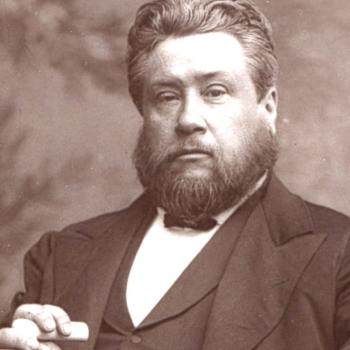PyroManiac: quotes Spurgeon today “Even if you could obtain miraculous gifts, you ought not to be satisfied to speak with tongues, nor to work miracles; but you should press on to know the Spirit with yourself indwelling, communing, quickening you.”
In this quote Spurgeon shows himself to be the “experiential cessationist” I know him to be. Many modern or so-called “total cessationists” would not recognize this clear experience that Spurgeon talks of. I wonder if Phil would, or if he would explain it away.
What I want to know about Phil is not whether he speaks in tongues (I expect not!) but rather does he have an intimate, experience of the Spirit as described by Spurgeon and others.
It is vital for us to know a God who is both active and present, rather than some modern concoction of a passive and absent figure who has left us only an intellectual relationship with the bible to be going along with! Such a caricature is I know preached by some cessationists, I wonder if Phil is one of them?
I need a God who both hears my prayers, and lets me know he has done so. If you are open to impressions of Gods Spirit that you don’t want to call prophecy, who am I to argue with you?
But if you would lock God up in a cage of your own making that forbids him from pouring out his love experientially into our hearts with no exegetical basis whatsoever, then I will oppose your view of God with every fiber of my being.
If Phil wants the charismatic to admit that things are not quite the same as they were in the apostolic era, I doubt that there are many who would disagree.
If I call on the cessationist to admit that the Holy Spirit is still experientially active in the lives of believers I wonder how many of them would concede that point?
If both points are conceded, then Phil is right about one thing, our discussions become a matter of what are the similarities and what are the differences between our experience and that of the 1st Century Christian. We will still have differences and much to disagree on, but hopefully many of our arguments will turn out to be ones that largely concern definition and degree.
The fly in the ointment of any theological reconciliation of what is actually a relatively recent theological schism (ie that of cessationism vs charismaticism) is of course glossalia or tongues, but that is surely a subject for another post!












